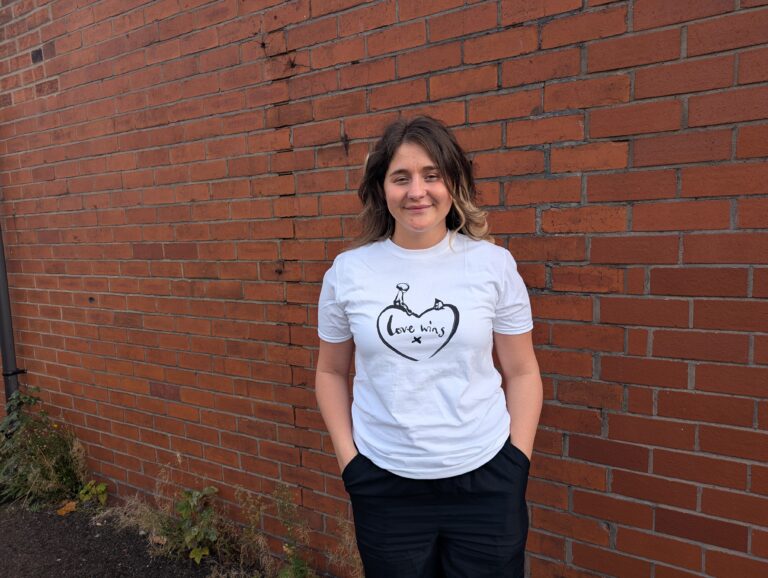Meet Stephanie Scotson, Rough Sleeping Support Service
Can you tell us a little about your role at The Brick and what a typical day looks like for you?
No one day is ever the same. Most mornings begin at 5am with outreach, checking in on people who are rough sleeping, making sure they are as safe and supported as possible. We also respond to reports of new people who might be out there and need help. Later in the day, we hold support sessions at more sociable times, often in cafés, libraries, or public spaces, places where people feel comfortable enough to talk. Alongside face-to-face contact, we also reach out to local businesses and services, asking if they’ve noticed anyone rough sleeping nearby. Our work is rooted in partnerships, with Wigan Council, housing associations, and even private landlords, so that when someone is ready to make choices about housing, they have real options in front of them. At the heart of my role is one simple goal: making sure no one feels invisible.
What first inspired you to work in homelessness support, and what keeps you motivated?
For me, it was about wanting to make a difference in the place I call home. I’m proud to live in Wigan and Leigh, and I want others to feel proud of this borough too. Some of my colleagues bring lived experience, others bring a naturally caring personality, but we all find that The Brick’s values line up with our own. What keeps me motivated is knowing that even a small act, listening, offering advice, or sharing a hot drink, can give someone the courage to take their next step forward.
What’s the most rewarding part of your work?
It’s the moments when someone realises they can achieve their goals. Sometimes all it takes is a bit of guidance or encouragement. Even if people don’t always say thank you, you can feel the difference in the way they carry themselves, the ease in their faces, and the pride that comes from taking control of their own lives.
From your perspective on the frontline, what are some of the biggest challenges people facing homelessness deal with day-to-day?
The toughest thing is the lack of independence and personal space. Even if someone has a bed for the night, they rarely get a “minute” to themselves. That constant absence of privacy wears people down in ways many of us can’t imagine.
Are there any misconceptions about homelessness you’d like to challenge?
Yes, homelessness is a temporary situation, not an identity. We work with parents, graduates, professionals, and people from all walks of life. It can happen to anyone.
What does dignity mean to you in the context of your work?
Dignity means recognising that the person is the expert in their own life. Our role is to remove barriers and share options so they can take the lead. We don’t have all the answers, and we don’t pretend to.
Can you share an example of when you’ve seen hope shine through, even in difficult circumstances?
One woman we supported had survived horrific trauma in her home country. She was terrified when she first met us, carrying phobias and a new cancer diagnosis, all while being asked to leave her accommodation. It seemed like the weight of the world was on her shoulders. Through close partnership working, we secured her safe housing the same day, with wraparound support. The change was incredible. From hopelessness to walking with a spring in her step, you could see hope shining through.
How important is the local community in helping people move forward?
Community is everything. We can help people into accommodation, but belonging comes from feeling part of something bigger. Once someone realises they’re welcome in their local area, that’s when a house truly becomes a home.
What does the Love Wins campaign mean to you personally as someone working on the frontline?
For me, love is at the centre of everything we do. Many people we meet haven’t experienced much love or kindness, and offering that, while keeping professional boundaries, gives them a second chance. Love changes things.
If you could share one message with the people of Greater Manchester about homelessness, what would it be?
Homelessness doesn’t have one face. It’s a housing situation, not an identity. It can affect people in work, families, anyone. If we raise awareness, support services, and work together on solutions, we can create a more loving, supportive society.
How does “Love Wins” capture the spirit of what you see in your work?
Because when you show love, it comes back. From the people we support, from our partners, from the community; love is what makes change possible.

